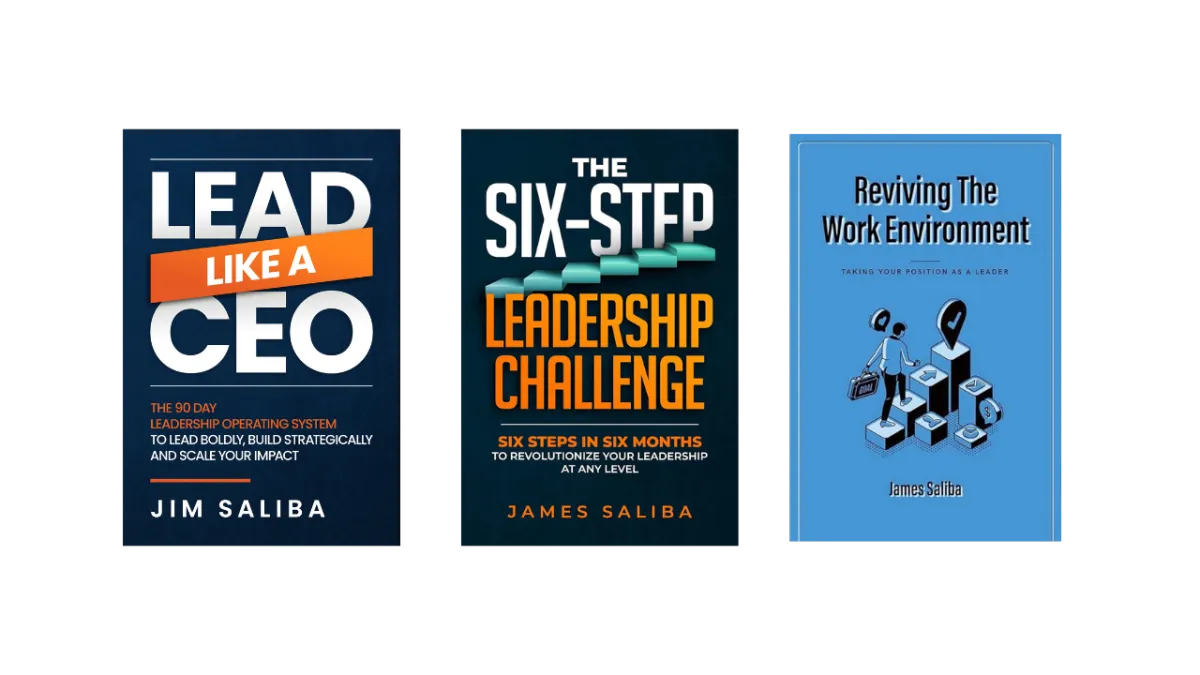Insights for Real-World Leadership
Straight talk and proven strategies for leaders who are done babysitting and ready to lead at the next level.

Signs Your Team Lacks Support for Constructive Conflict: A Closer Look
In the realm of team dynamics, fostering constructive conflict is an essential element that propels you toward success. Constructive conflict occurs when you engage in discussion about ideas, strategies, and decisions, maintaining a focus on the common goal. This article will explore the significance of constructive conflict as a dimension of a high-performing team, highlighting five indications that you may lack adequate support in this dimension.
Missed Opportunities for Effective Use of Open Communication Channels
One indication that your team needs more support is the missed opportunities for effectively utilizing open communication channels. Constructive conflict flourishes when you feel comfortable expressing your opinions, sharing feedback, and engaging in healthy debates. For example, suppose you need to capitalize on the potential of open communication channels, such as team meetings, collaborative platforms, or regular check-ins. In that case, it hinders your ability to tap into the wealth of ideas and perspectives that each member brings. A high-performing team recognizes the importance of effectively utilizing these channels, fostering an environment where open communication catalyzes constructive conflict and collective growth.Reluctance to Challenge Assumptions
Another indication that you lack adequate support is a reluctance to challenge assumptions. Constructive conflict enables you to question and critically analyze the underlying assumptions behind ideas, strategies, and decisions. When you hesitate to challenge these assumptions, it limits your potential for growth and improvement. A high-performing team encourages you to explore different perspectives, fostering an environment where questioning assumptions is valued as a means to reach better outcomes.Limited Diversity of Perspectives
Constructive conflict thrives when you embrace diverse perspectives. If your team lacks diversity, it can hinder generating of innovative ideas and solutions. Homogeneous teams may fall into groupthink, where consensus overrides critical thinking. To foster constructive conflict, a high-performing team seeks out diverse viewpoints, recognizing their value in enhancing decision-making processes and problem-solving capabilities.Avoidance of Challenging Conversations
Your avoidance of challenging conversations is another indication that support may be lacking. Constructive conflict requires a willingness to engage in difficult discussions, even when they may lead to disagreements or discomfort. If you shy away from addressing conflicts or resort to passive-aggressive behavior, it prevents you from exploring alternative perspectives and finding effective solutions. A high-performing team encourages open dialogue, providing a platform for resolving conflicts constructively and strengthening relationships.Lack of Mutual Respect and Trust
Mutual respect and trust are foundational elements of constructive conflict within a high-performing team. Engaging in healthy debates and discussions becomes overwhelmingly challenging if you lack these essential components. You may resort to personal attacks, defensiveness, or dismissive behavior in an environment lacking respect and trust. Building trust and fostering respect involves actively listening to each other, valuing diverse opinions, and maintaining professionalism even during disagreements. High-performing teams cultivate an atmosphere where trust and respect are paramount, enabling constructive conflict to flourish.
After recognizing the five signs indicating a lack of support for constructive conflict within your team, it is crucial to assess and evaluate the current state of your engagement in healthy debates and discussions. To gauge the level of constructive conflict, consider asking yourself the following questions:
How often do team members engage in healthy debate and discussion?
Assess the frequency at which team members actively participate in constructive conflict. Do they openly share diverse viewpoints and challenge assumptions? Are there opportunities for meaningful exchanges of ideas and perspectives?How well do team members listen to each other during conflict?
Evaluate the quality of active listening within your team. Do team members genuinely listen to each other's viewpoints without interrupting or dismissing them? Are they able to empathize and understand different perspectives?How often do team members reach a consensus or resolution after constructive conflict?
Determine how often the team is able to reach a consensus or resolution after engaging in constructive conflict. Assess the team's ability to collaborate, find common ground, and make decisions that align with the common goal.How effectively are conflicts managed and resolved within the team?
Evaluate the team's conflict management skills. Are conflicts addressed directly and constructively? Does the team have processes in place to facilitate resolution and prevent conflicts from escalating?To what extent does the team embrace and value diverse perspectives?
Assess the team's attitude towards diversity of perspectives. Are different viewpoints actively sought out and respected? Does the team appreciate the value that diverse perspectives bring to decision-making and problem-solving?
By reflecting on these questions, you can gain valuable insights into the level of constructive conflict within your team and identify areas for improvement. Remember, fostering a supportive environment for constructive conflict is crucial for enhancing collaboration, innovation, and overall team performance.
In conclusion, recognizing and nurturing constructive conflict within your team is vital for driving high performance and achieving collective success. By addressing the five signs of inadequate support for constructive conflict discussed in this article, you can lay the foundation for a more collaborative and innovative team environment. Encouraging open communication, challenging assumptions, embracing diverse perspectives, engaging in challenging conversations, and fostering mutual respect and trust are essential steps towards creating a culture of constructive conflict.
To further enhance the constructive conflict within your team, we are here to help. We invite you to contact us if you require guidance or support in improving team dynamics, conflict resolution, or fostering a culture of open dialogue. Simply email us at jim@jamessaliba.com to schedule a meeting with our team of experts. Together, we can empower your team to leverage the power of constructive conflict, enabling your team to reach new heights of performance and achievement.
Leaders Who’ve Made the Shift
Michael R., Senior VP

“Jim did more in two sessions than my last coach did in six months.”
(Translation: Jim doesn’t waste your time.)
Karen H., Senior VP

“Jim made it easy to focus on the real leadership challenges.”
(Translation: No fluffy theories. Just real talk and results.)
Ashly N., Director

“Within 15 minutes, I knew I’d made the right decision.”
(Translation: You’ll know fast if Jim’s your coach.)
Stop Acting Like the Chief Fire Extinguisher.
Start Leading.
You know the endless approvals, babysitting, and check-ins aren't real leadership. Let's fix that.
© 2026 James Saliba Inc. • All Rights Reserved • Helping Tech Leaders Lead Strategically Without Firefighting • Terms & Conditions


